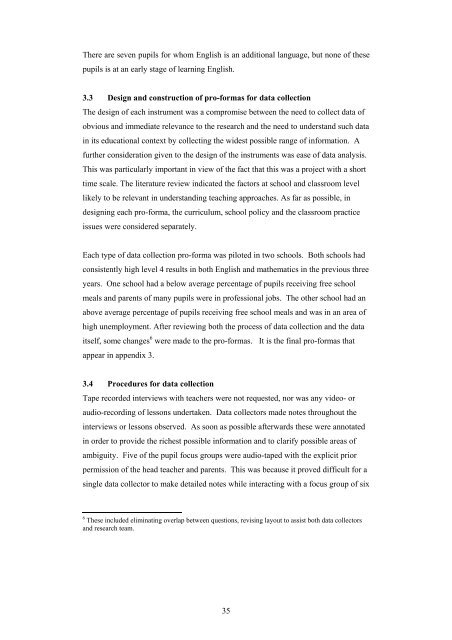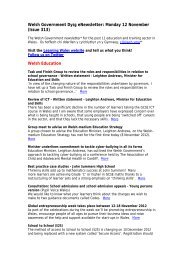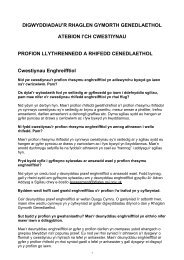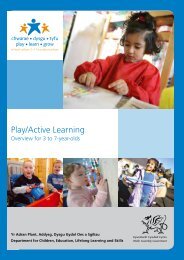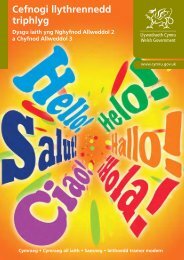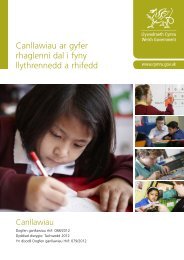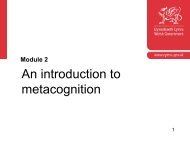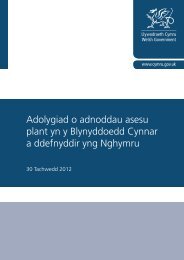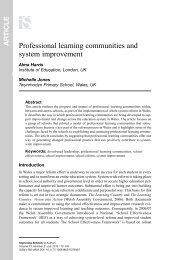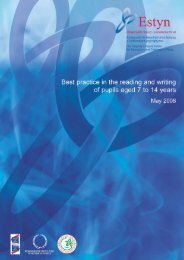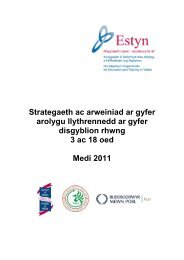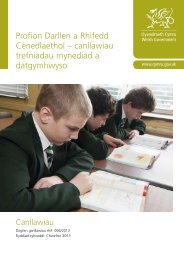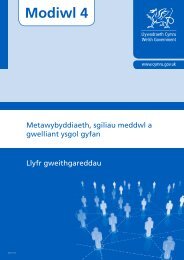Teaching Approaches to Promote Consistent ... - Learning Wales
Teaching Approaches to Promote Consistent ... - Learning Wales
Teaching Approaches to Promote Consistent ... - Learning Wales
You also want an ePaper? Increase the reach of your titles
YUMPU automatically turns print PDFs into web optimized ePapers that Google loves.
There are seven pupils for whom English is an additional language, but none of thesepupils is at an early stage of learning English.3.3 Design and construction of pro-formas for data collectionThe design of each instrument was a compromise between the need <strong>to</strong> collect data ofobvious and immediate relevance <strong>to</strong> the research and the need <strong>to</strong> understand such datain its educational context by collecting the widest possible range of information. Afurther consideration given <strong>to</strong> the design of the instruments was ease of data analysis.This was particularly important in view of the fact that this was a project with a shorttime scale. The literature review indicated the fac<strong>to</strong>rs at school and classroom levellikely <strong>to</strong> be relevant in understanding teaching approaches. As far as possible, indesigning each pro-forma, the curriculum, school policy and the classroom practiceissues were considered separately.Each type of data collection pro-forma was piloted in two schools. Both schools hadconsistently high level 4 results in both English and mathematics in the previous threeyears. One school had a below average percentage of pupils receiving free schoolmeals and parents of many pupils were in professional jobs. The other school had anabove average percentage of pupils receiving free school meals and was in an area ofhigh unemployment. After reviewing both the process of data collection and the dataitself, some changes 6 were made <strong>to</strong> the pro-formas. It is the final pro-formas thatappear in appendix 3.3.4 Procedures for data collectionTape recorded interviews with teachers were not requested, nor was any video- oraudio-recording of lessons undertaken. Data collec<strong>to</strong>rs made notes throughout theinterviews or lessons observed. As soon as possible afterwards these were annotatedin order <strong>to</strong> provide the richest possible information and <strong>to</strong> clarify possible areas ofambiguity. Five of the pupil focus groups were audio-taped with the explicit priorpermission of the head teacher and parents. This was because it proved difficult for asingle data collec<strong>to</strong>r <strong>to</strong> make detailed notes while interacting with a focus group of six6 These included eliminating overlap between questions, revising layout <strong>to</strong> assist both data collec<strong>to</strong>rsand research team.35


